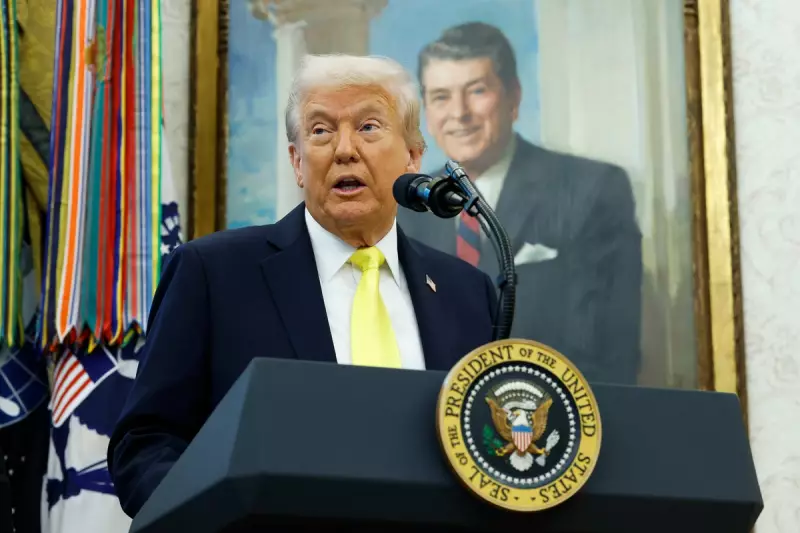
Former President Donald Trump has made the extraordinary claim that his administration's tariff policies brought multiple international conflicts to an end, despite evidence to the contrary.
Speaking at a recent political rally, the Republican frontrunner repeated his controversial assertion that trade wars are "good and easy to win" while adding the new dimension that such economic measures had resolved longstanding global disputes.
The Rally Rhetoric
During his characteristic free-wheeling speech, Trump told supporters: "We ended wars with tariffs, nobody talks about that. We ended numerous wars." The claim marks a significant escalation of his previous defences of protectionist trade policies that defined much of his presidency.
Political analysts noted this represents a new layer to Trump's ongoing justification of the trade wars he initiated with China, the European Union, Canada and other major trading partners during his term in office.
Fact Versus Fiction
Historical records show that while Trump's administration did broker several significant diplomatic agreements, including the Abraham Accords between Israel and several Arab nations, no major armed conflicts were resolved through tariff implementation.
The United States remained engaged in multiple military operations throughout Trump's presidency, including ongoing involvement in Afghanistan, Syria and Iraq, with none showing evidence of resolution via trade policy.
Economic Consequences
Trump's original tariff impositions triggered retaliatory measures from trading partners worldwide, leading to significant economic disruption and costing American businesses and consumers billions according to multiple economic studies.
Many of these tariffs remain in place today, continuing to shape international trade relationships and ongoing negotiations between the US and its economic partners.
Political Implications
With Trump positioning himself for a potential return to the White House, his latest comments suggest trade wars would feature prominently in any future administration, potentially reigniting global economic tensions.
International observers are watching closely as the former president continues to reshape Republican trade policy orthodoxy, moving the party away from its traditional free-trade stance toward a more protectionist approach.





